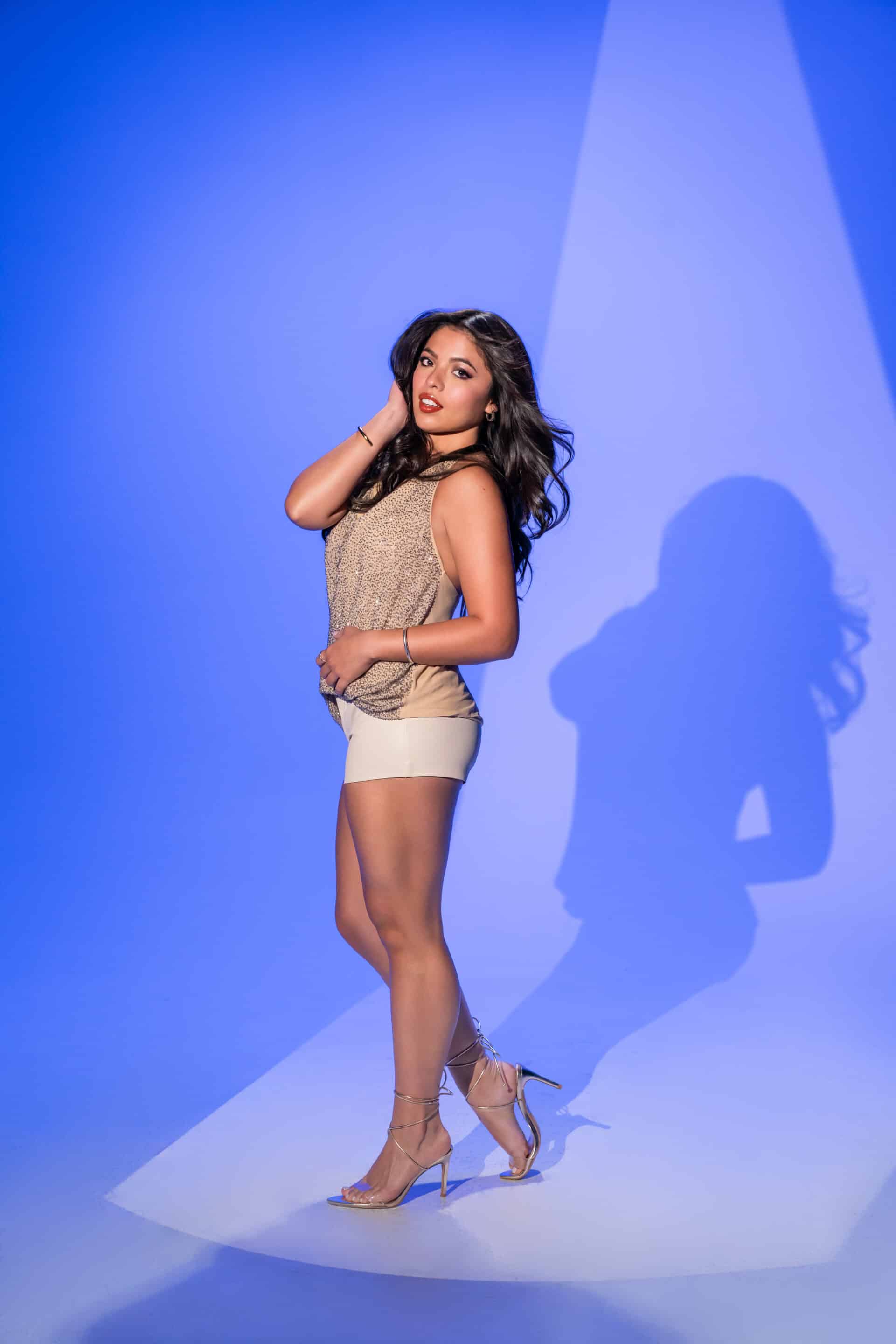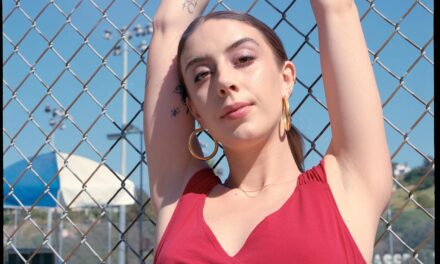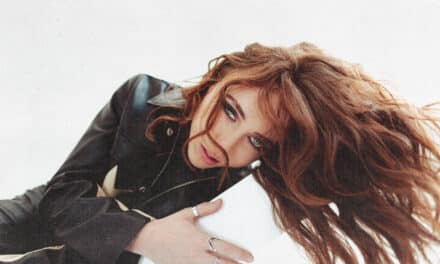Sara Angel, the 22-year-old Nashville-based singer-songwriter on the rise, returns June 6th with “what’s love?” – a haunting indie pop ballad lingering in love’s afterglow. Balancing raw vulnerability and restrained intensity, the track captures the quiet unraveling following a fractured relationship, exploring the devastation of holding onto someone who once felt like home but slipped away. Born into music as the daughter of Christian artist Priscila Angel and Los Temerarios frontman Gustavo Angel, Sara draws from a rich musical lineage while forging her own path – blending indie pop, R&B, and Latin influences into a sound that’s nuanced, atmospheric, and unmistakably hers.
Through poignant lyrics and evocative melodies, “what’s love?” asks the unanswerable: how do you forget what was once everything?
Angel imparts, “‘What’s Love?’ is about loving someone who’s already gone. It’s holding onto memories that still feel real, even when you know they’re not coming back. It’s the kind of love that hurts because it never had a chance to stay.”
Born in Mexico and raised in Texas, Angel moved to the U.S. at age five. Surrounded by her mother’s Regional Mexican contributions and her father’s Mexican pop hits, her connection to music formed early. “I grew up seeing them work, hearing them sing songs and then singing with them,” she recalls. She began penning songs in third grade, but it wasn’t until senior year of high school that everything clicked. “I was like, ‘Okay, I really want to do this,’” she adds.
“What’s Love?” feels deeply personal and emotionally raw. What moment or experience first sparked the inspiration for this song?
The song started as a question I couldn’t answer. I was holding on to something that had already ended, and I didn’t know how to let go. I wrote “what’s love?” at a time when I was trying to understand what to do with a feeling that had nowhere for it to go. That confusion became the core of the song.
You describe the song as “loving someone who’s already gone.” How do you navigate the line between personal storytelling and universal emotion in your music?
I try to be as honest as I can about my experience, because when I am, I’ve found that people connect even more. “Loving someone who’s already gone” is something so specific to me, but I’ve had people tell me they related to it through loss, heartbreak, or even personal growth. The more personal I get, the more it opens up space for others to see themselves in it too.
You’ve inherited a rich musical legacy from your parents, but your sound is distinctly your own. How has your upbringing shaped — and challenged — your artistic identity?
Growing up around music gave me a strong foundation, but it also pushed me to figure out what my sound was. I’ve learned to take what I inherited and mix it with the influences I’ve picked up on my own. It’s been a process of honoring where I come from while carving out something new.

The fusion of indie pop, R&B, and Latin influences in your work feels so natural. How do you approach blending genres while keeping your music authentic?
I don’t go into a session saying, “let’s make this indie pop with Latin influence”. I just follow the emotion of the song and let it lead. Because I listen to so many genres and grew up speaking two languages, those influences show up naturally. I think authenticity comes from intention. If the heart of the song is real, the blend feels honest too.
You started writing songs in third grade — do you remember what those early songs were about? How has your writing evolved since then?
I started writing in third grade. The songs were mostly about love, even though I had no idea what that meant yet. I think I just loved the drama of it. Over time, my writing has become less about what I think I should say and more about what I need to say. I’ve learned to sit with discomfort, to let things be messy. That’s where the magic usually is.
Nashville is often known for country music, but you’re carving out a different lane. How has the city influenced your development as an indie pop artist?
Nashville taught me the importance of the song above everything. Even though I’m not in the country space, being surrounded by storytellers made me step up my writing. It’s also helped me appreciate collaboration in a new way. Co-writing with people pushed me out of my comfort zone and helped shape my sound.
What’s Love?” asks the unanswerable. When writing it, were you hoping to find closure or simply to capture the feeling?
Honestly, a little of both. I wasn’t sitting down to find closure, but writing it helped me realize that maybe I was still looking for answers I’d never get. I didn’t want to end the song with certainty, because that’s not where I was and I think a lot of people live in that same question.
Your cover of your father’s “Creo Que Voy a Llorar” gained attention for its bilingual intimacy. Do you plan to continue exploring music in both Spanish and English?
Absolutely. I grew up in the U.S., but Spanish is such a big part of who I am. Writing in both languages feels like coming home to myself.
You mentioned songs like “Echo” helped solidify your sound. What do you think defines the Sara Angel sound today?
I think my sound today is defined by contrast: sad lyrics, sometimes with a beat that makes you wanna dance. Honest, sometimes a little too honest. Emotional but never overdone.
Your music invites emotional connection and vulnerability. What do you hope your listeners feel or discover when they press play?
I hope they feel like they’re not alone. Whether they’re healing, falling apart, or just trying to understand their feelings, I want my music to meet them there.





